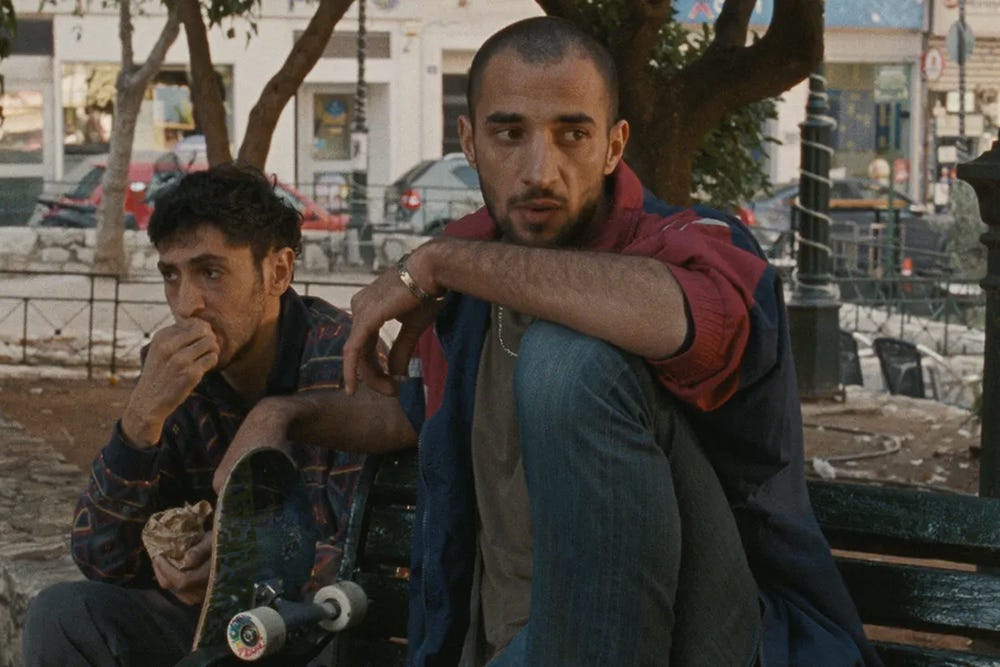The Unconditional Empathy of “To a Land Unknown”
Our humanity is not dictated by our moral integrity
If you are trapped within a structure maintained by violence, to what extent are you forced to use that violence as currency in order to escape it? This is the question posed by Mehdi Fleifel’s first narrative feature, To a Land Unknown, which paints an honest portrait of a brutally transactional world. The film follows two Palestinian cousins, Reda (Aram Sabbah) and Chatila (Mahmood Bakri), refugees in Athens, who have resorted to petty theft in hopes to buy fake passports to reach Germany.
As their circumstances as refugees grow increasingly demanding, the two must escalate the severity of their crimes in an attempt to attain the future that they dream of. Pickpocketing and petty theft turns elaborate and inward, as the two eventually target other refugees also seeking asylum, replicating the same exploitation they’ve been subjected to in order to escape it.
To a Land Unknown is a deeply empathetic film, but this empathy is not predicated on a sentimental standard of moral purity that its characters must uphold. Drawing upon the syntax of Midnight Cowboy and The Kid, there is no deluded expectation that Reda and Chatila can only earn their humanity through a begrudging acceptance of their circumstances. Instead, To a Land Unknown affords them this empathy unconditionally, even when the two are disillusioned as consequence of their own moral degradation.
For much of the film, Reda and Chatila are able to compartmentalize their identity based on their actions. Their dignity exists on a different plane, untested by the morally questionable strategies they employ — if anything, these actions are only taken in order for their humanity to be more fully realized. Their status as subjugated excuses the moments when their survival hinges on the emulation of this subjugation.
To a Land Unknown performs a careful balancing act; it does not compromise its empathy as its protagonists begin to question whether their morality has stayed intact, and simultaneously never articulates this unconditional empathy in the form of a plea. As the film occupies an increasingly ambiguous space, it does not devolve into generic questions about moral turpitude when forced into a position that, for once, requires them to perpetrate the cruelty. Instead, the film suggests the structure of this brutality as so effective that it can force its victims to also be its conductors, multiplying its efficiency by pitting its wounded against each other and nudging them with a false sense of hope.
The naturalist approach of the film underlines this thesis, patiently capturing the protagonist’s movements as to never treat their bodies as specimens in a spector’s exercise in empathy with the oppressed. Critic Catherine Bray describes this technique in her review for Variety as a “strategy that helps keep the audience connected to the specifics of their story, rather than being overwhelmed by statistics or numbed by the sense of impotence that a panoramic view of the injustices faced by the likes of Chatila and Reda might inspire.”
While intimate, the composition gives each of the actors the breathing room necessary so as not to frame their performances clinically, striking a balance in delineating their experience as both singular and structural. The patient metonymy of the film’s compositions focuses on simple movements of being, using the isolated gestures of the body to stand in for the universal totality of their experience.
OVERALL SCORE: 9/10
To a Land Unknown was first released on May 22, 2024 at Cannes Film Festival and is awaiting a wide release.



the horror.